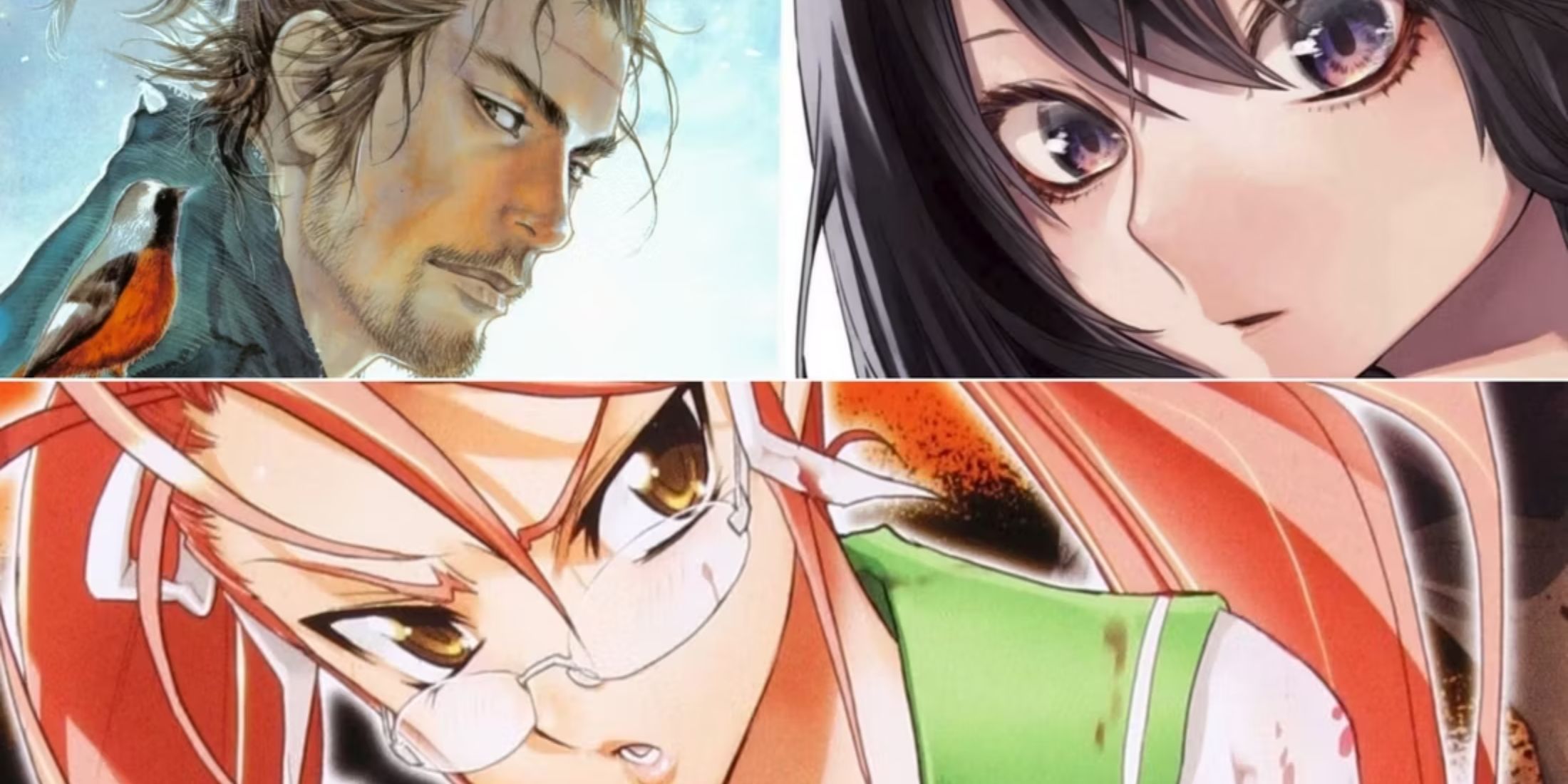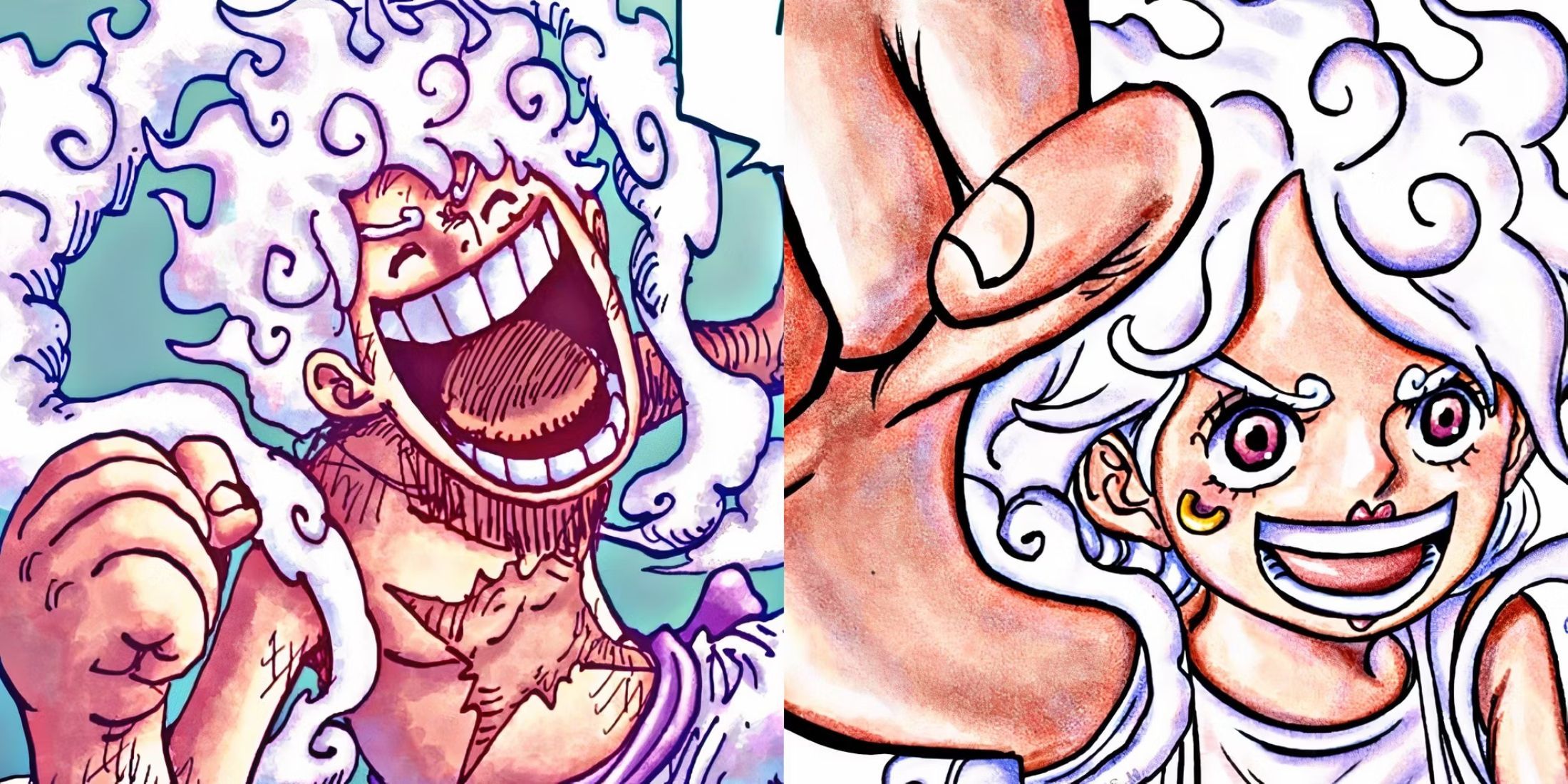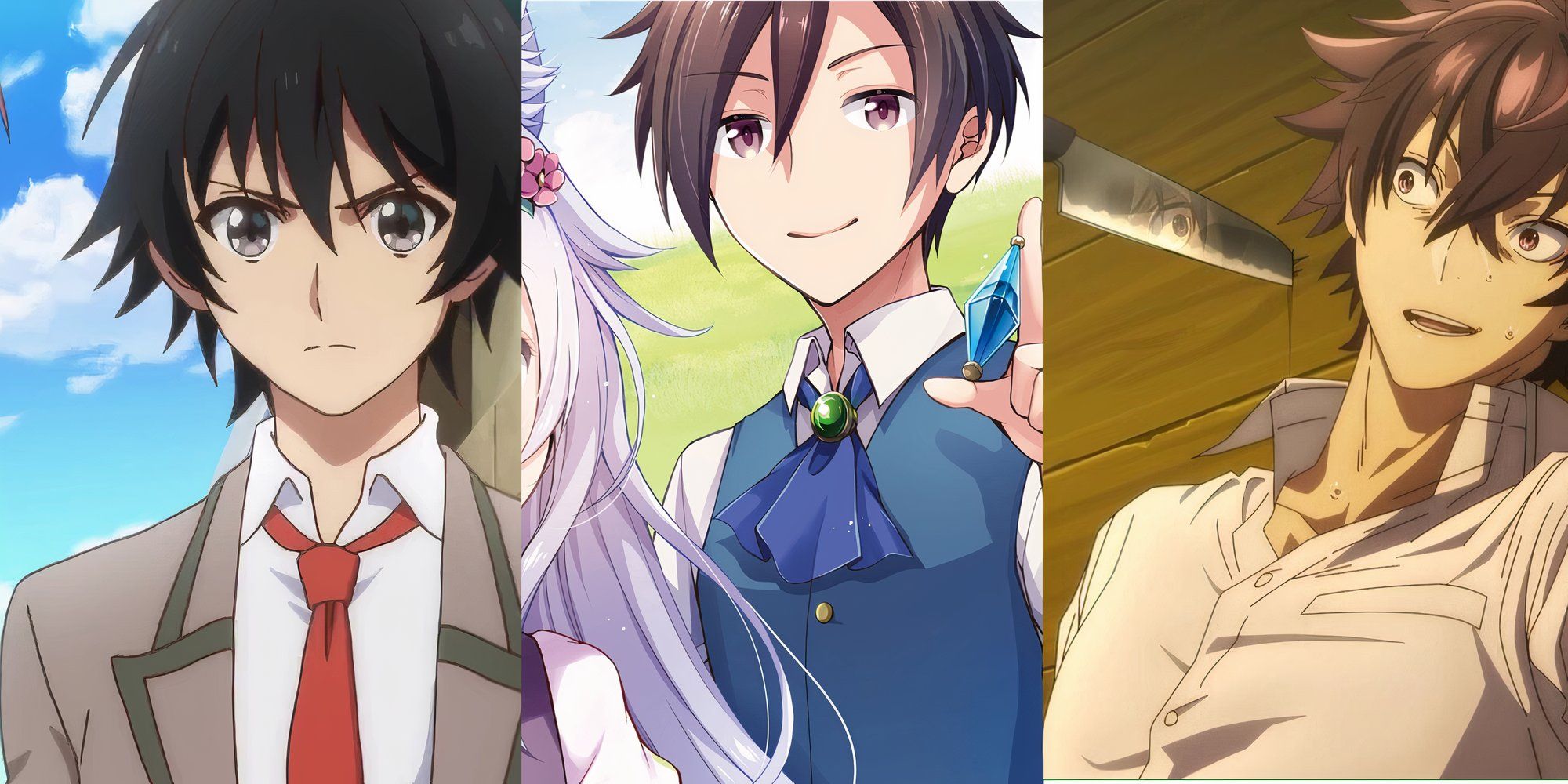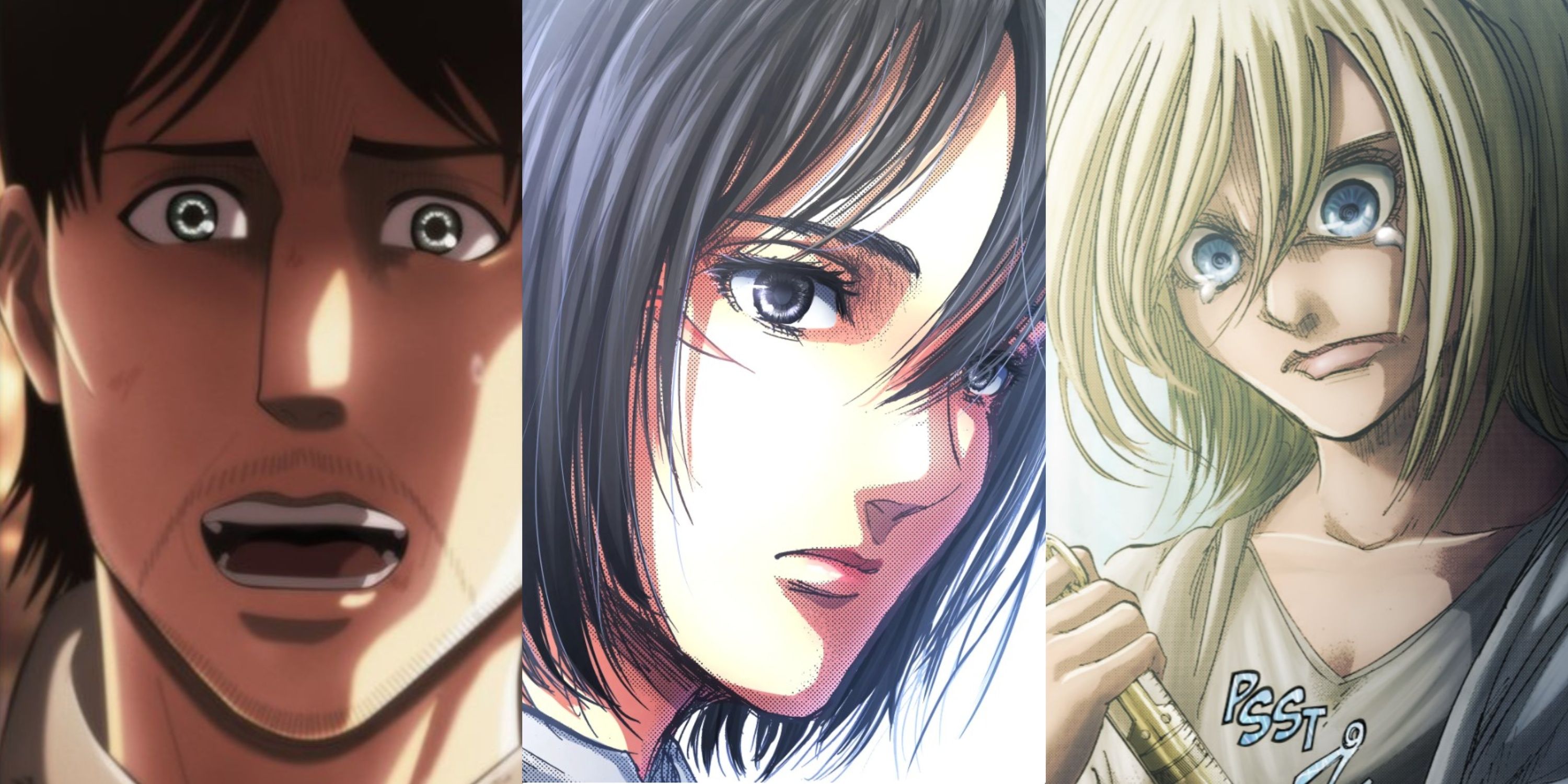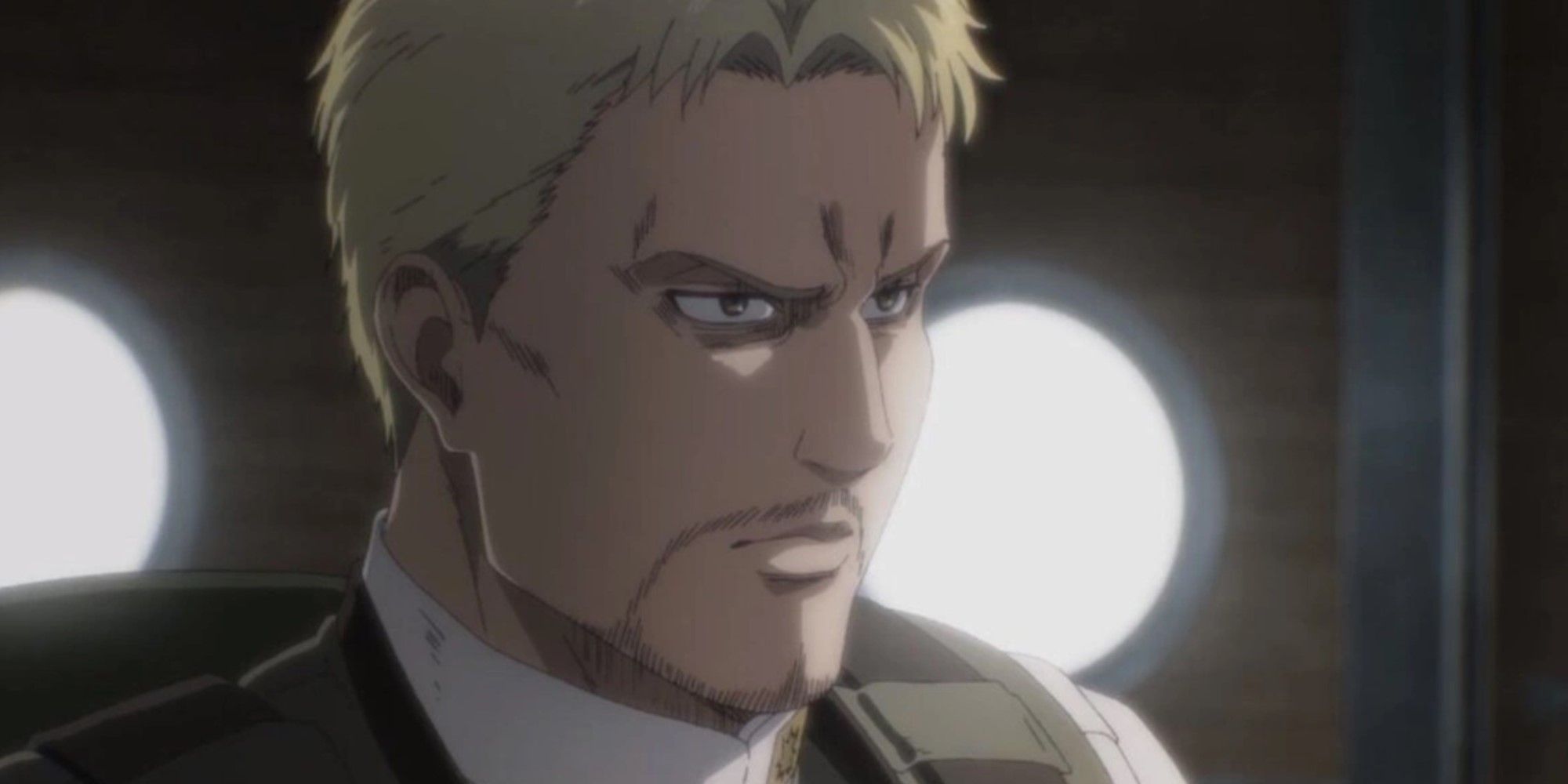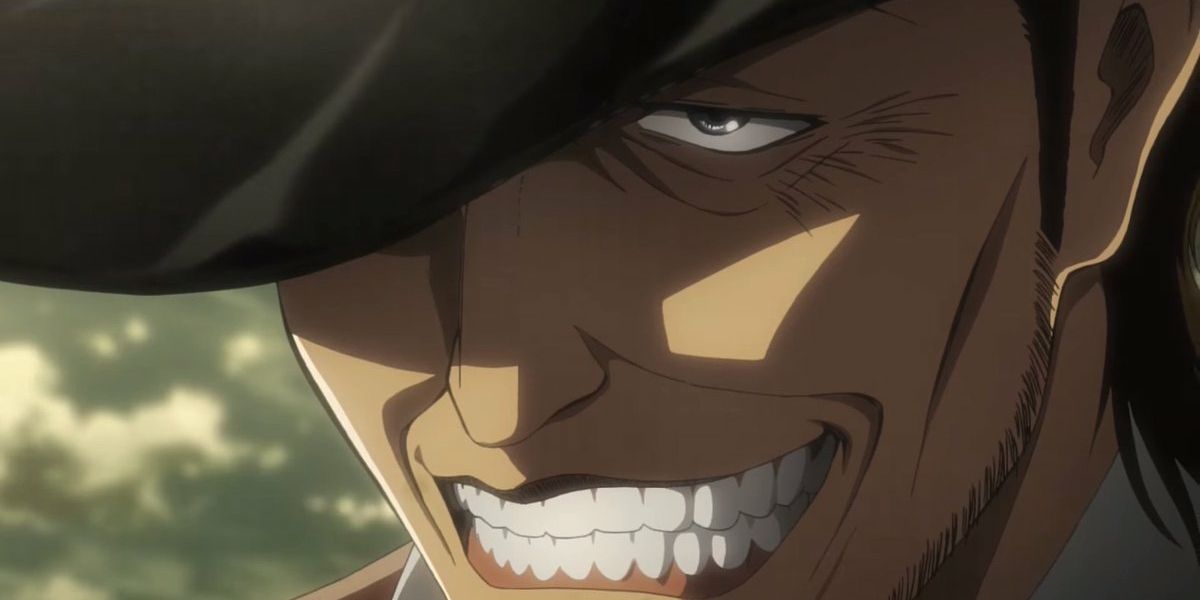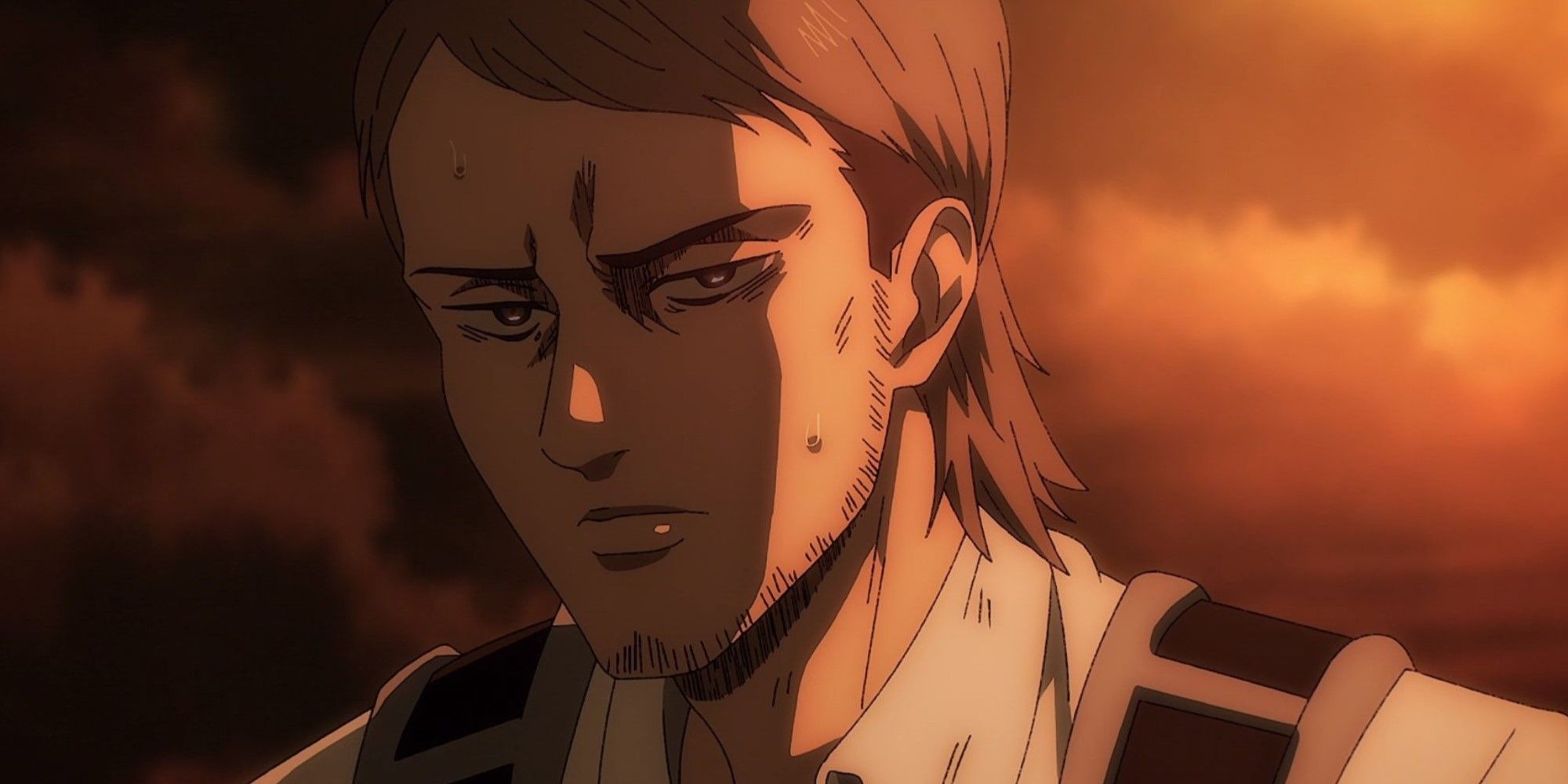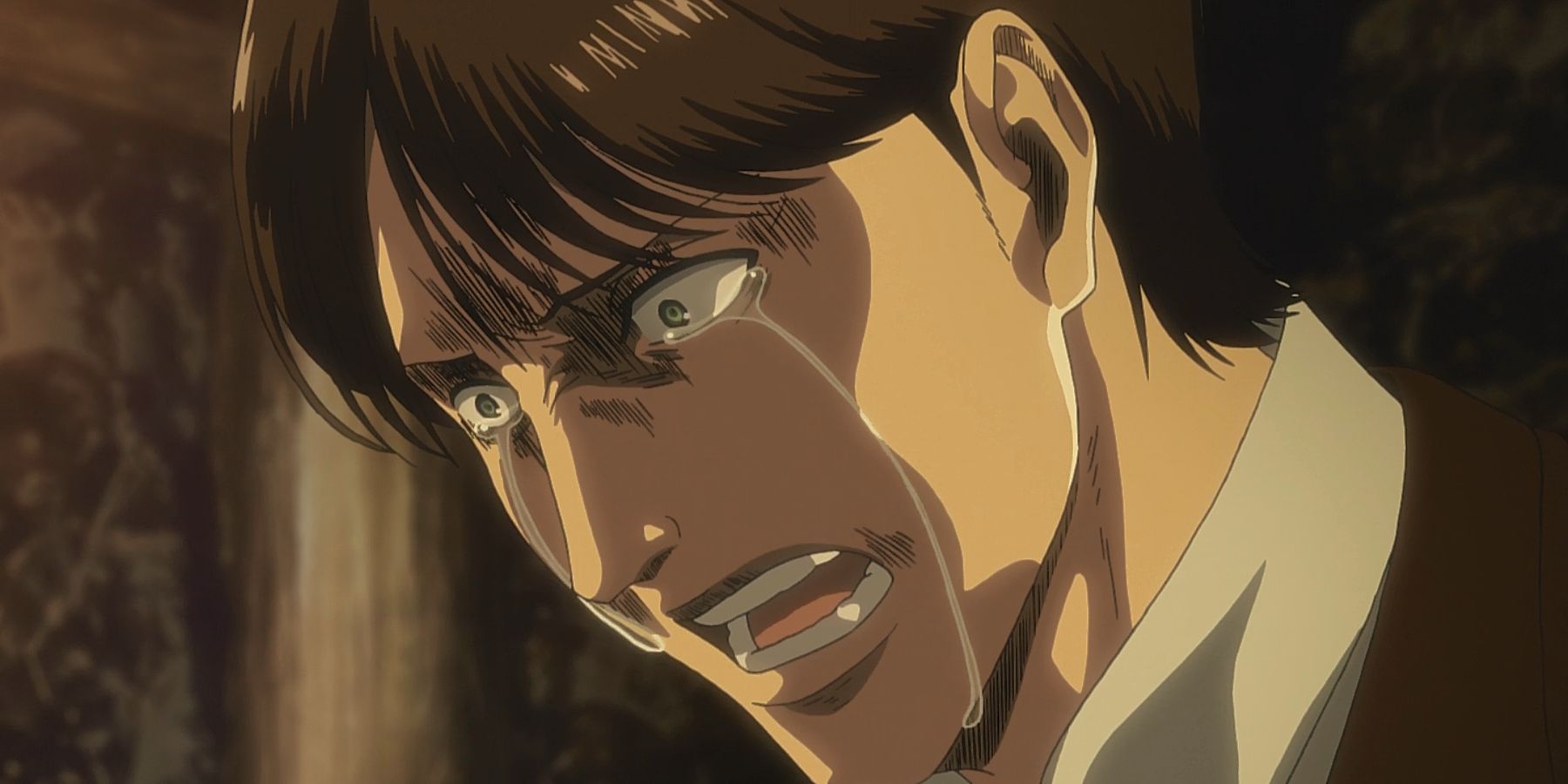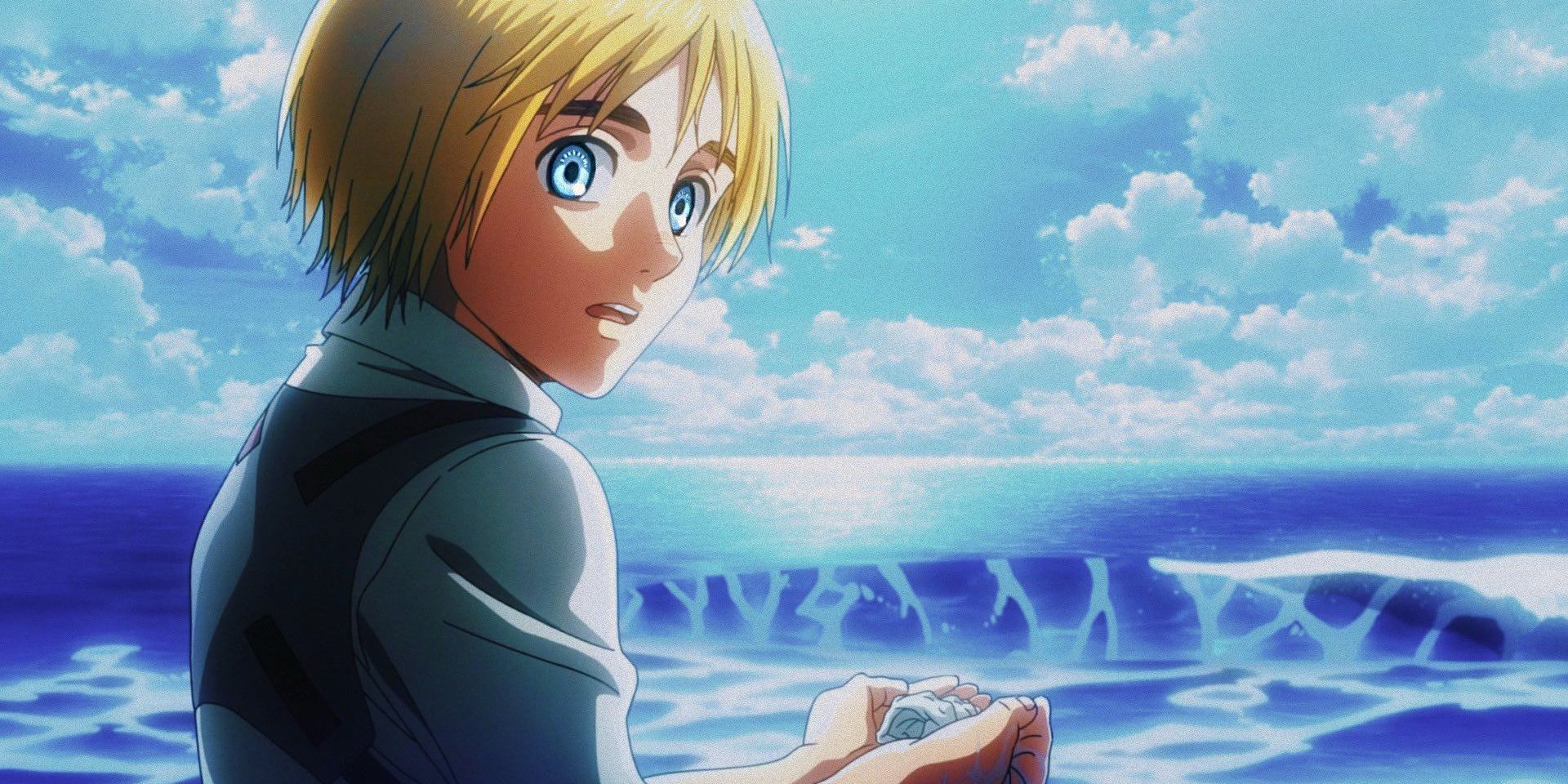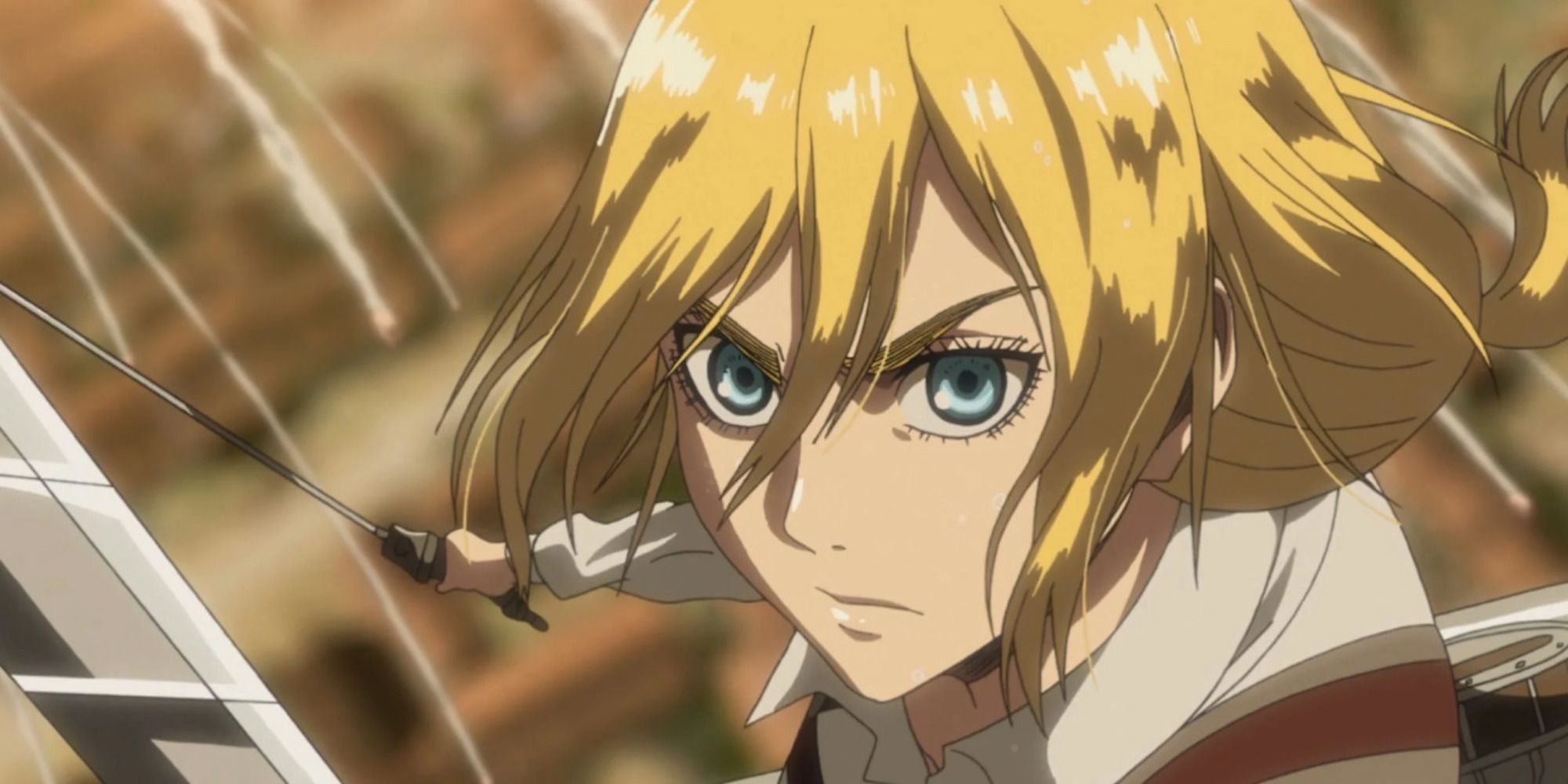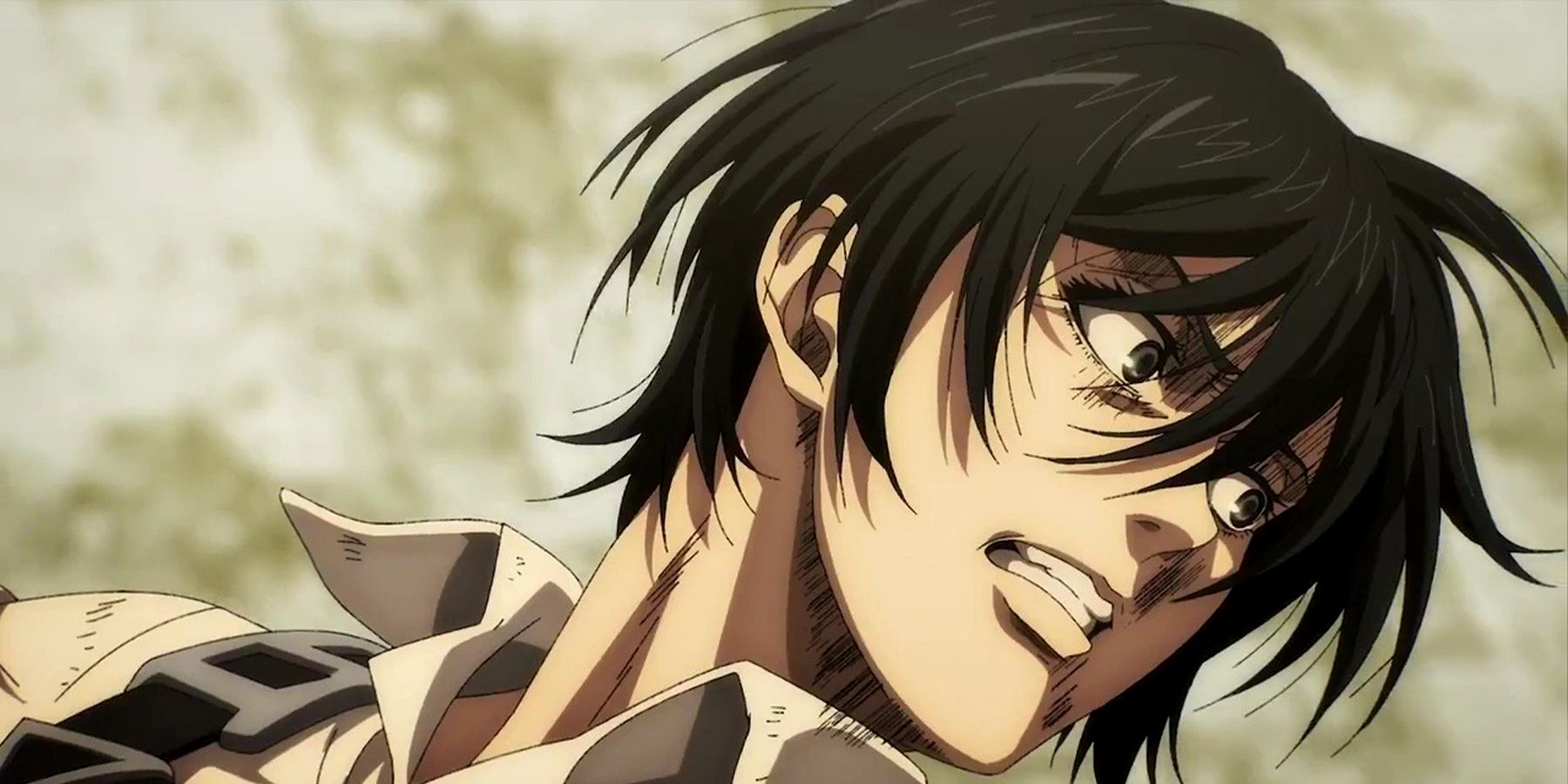Highlights
- The anime adaptation of Attack on Titan has excelled in bringing the story to life on screen with superb visuals, voice acting, and soundtrack.
- Some characters like Reiner and Kenny had more detailed and impactful character development in the manga compared to the anime.
- The portrayal of Jean's rivalry with Eren was more balanced in the manga, while the anime emphasized Eren's perspective more, although it was slightly rectified later on.
Over the course of more than a decade of serialization, Hajime Isayama's Attack on Titan earned many plaudits for the quality of its narrative, and its exploration of pertinent real-world issues such as war, militarism, racial discrimination, and genocide. However, one domain in which the series has excelled beyond expectation is in the nuance of its character development, where each member of the main cast feels real, fleshed out, flawed, and driven by their own personal struggles and agendas.
The anime adaptation of the series, which was first produced by WIT Studio and later by MAPPA Studio, has done an exceptional job in bringing the story to life on screen, enhancing it through sublime visuals, immaculate voice acting, and an iconic soundtrack. In fact, there is little to no criticism that can be levied on the Attack on Titan anime, especially since it has been a resounding success for most of its run, regularly placing among the most anticipated series airing each season. That being said, there are a few changes in the anime's handling of its cast which ever so slightly diverged from the manga, yielding characters that may not be as well-developed as their counterparts from the source material.
7 Reiner Braun
- Anime Debut Episode: 2
- Manga Debut Chapter: 2
Reiner in the anime is an incredibly well-written character, and the deviations in his narrative arc are only minor compared to other members of the main cast. That being said, some of Reiner's formative moments, such as his troubled childhood, as well as the complicated relationships he shared with his mother Karina Braun, and his absent Marleyan father, had more time to breathe in the manga.
Karina's role in misleading Reiner on his view of his role as a Warrior, and the false promise it held in reuniting his parents, was also given more weight. Furthermore, the flashbacks to Reiner's time on Paradis as he recounted his exploits within the Walls to his family, were less prominent, which dampened how the conflicting emotions he held towards his failed mission and former comrades inside the Walls broke his mind, resolve, and will to live after returning to Marley. All this had a part in reducing the impact of Reiner's mental decline, as his inner conflict was given less room to fully build up.
6 Kenny Ackerman
- Anime Debut Episode: 38
- Manga Debut Chapter: 52
Cold, sadistic, ruthless, and calculating, Kenny Ackerman's sole purpose in life was the pursuit of power, which he sought to attain by acquiring the Founding Titan. Despite this, Kenny was also a complex individual burdened with intense self-loathing and a twisted sense of humor. He saw himself as a broken individual and wanted to know what it felt like to harbor genuine compassion, which is another reason why he wanted the Founding Titan, as he had seen its effect on both Uri and Frieda Reiss, who became vastly kinder individuals after inheriting its power.
That is not to say that Kenny was completely devoid of compassion, as he did devote a fair part of his life to raising Levi, his nephew, following the death of his sister Kuchel. After teaching Levi to survive in the Underground beneath the capital of Mitras, Kenny abandoned Levi as he could not see himself as someone worthy of raising a child. While most aspects of Kenny's character are consistent between the anime and its source material, his relationship with Levi is given more depth and detail through flashbacks in the manga, which better explained the history of the Ackerman clan and Kenny's relationship with his grandfather.
5 Jean Kirstein
- Anime Debut Episode: 2
- Manga Debut Chapter: 2
Easily one of the best-written characters in both the anime and manga versions of Attack on Titan, Jean's character underwent tremendous growth over the course of his exploits with the Survey Corps. At first, Jean played the part of a rationalist, a voice of reason who acted as a foil to Eren's unbridled optimism and bravado. Where the manga and anime differ lies in how their rivalry is portrayed.
The manga had a more balanced depiction of their rivalry, where Jean's concern for the lives of his comrades, and desire to savor what time he had left before the Titans overtook the Walls, was pitted against Eren's unwavering resolve to journey beyond the Walls and eradicate the Titans, putting his friends in harm's way in the process. By contrast, the anime portrays these interactions as more one-sided in Eren's favor, at first, although this is slightly rectified towards the latter half of the series.
4 Grisha Yeager
- Anime Debut Episode: 1
- Manga Debut Chapter: 1
Grisha Yeager had an extremely significant role in orchestrating the events of the series, rooted in the relationships he had with his sons Eren and Zeke. Having grown up in Liberio, on the Marleyan mainland, Grisha was wracked with guilt throughout his life for the death of his sister Faye, who was killed by Marleyan officers for venturing outside the internment zone. Driven to end Eldian persecution, Grisha joined the Eldian Restorationists and met Dina Fritz. Together, they plotted to recover the Power of the Titans through their son Zeke, whom Grisha pressured into joining the Marleyan Warrior program.
Unfortunately for him, Zeke informed the Marleyan government of his parents' illicit activities, leading to them being sent to Paradis to be turned into mindless Titans. In the process, Grisha encountered the holder of the Attack Titan at the time, Eren Kruger, who entrusted him with the mission to recover the Founding Titan from inside the Walls. Many of Grisha's most important scenes as a character during the flashbacks were given far more time in the manga, which also helped illustrate the complexity of the conflict between Eldia and Marley.
3 Armin Arlert
- Anime Debut Episode: 1
- Manga Debut Chapter: 1
Possessing an alarming knack for devising clever strategies in high-pressure situations, Armin's greatest asset is his mind, and his judgment was instrumental in the Survey Corps' victories against the many adversaries they faced. Despite his tactical acumen and intelligence, Armin struggles with his self-image, as he is not the most physically gifted soldier, which often results in him viewing himself as a coward and a burden to his allies.
In the manga, Armin suffers from a fair amount of self-doubt, as is the case with his anime counterpart, and also has trouble meeting the physical demands of being a soldier. Even in the face of this, he displays an alarming sense of resolve, standing his ground and abiding by his decisions regardless of the consequences. He is also a fair bit more assertive in the manga and has a closer relationship with Eren than his anime counterpart, due to their shared dream of seeing the world beyond the Walls.
2 Historia Reiss
- Anime Debut Episode: 2
- Manga Debut Chapter: 2
Burdened with the idea that she had to be seen as a good person, Historia endured a traumatic childhood as the illegitimate daughter of the nobleman Rod Reiss, who was actually a descendant of the Fritz line that had found refuge inside the Walls. Isolated from a very early age, Historia grew up in a household where her mother, the only real parental figure in her life, was distant and never showed a semblance of concern or care for her daughter.
In fact, Historia's mother rejected every desperate plea for affection from her daughter, going so far as to say that she wished she had never given birth to her. Believing herself to be a burden to those around her, Historia had an extremely low image of herself, and the only person who ever showed any kindness towards her was her half-sister Frieda Reiss. Shortly after the Fall of Wall Maria, Historia would see her mother killed before her eyes, as she reiterated her regret for having become her mother. These scenes were shown in greater detail in the manga, which provided much more insight into Historia's internal struggles and lack of concern for her own survival.
1 Mikasa Ackerman
- Anime Debut Episode: 1
- Manga Debut Chapter: 1
Perhaps the greatest example of how small incremental changes can alter the perception of a character over time lies in the character of Mikasa Ackerman. Whereas the Mikasa in the manga is developed much more holistically — especially in regard to her relationships with other characters — her anime counterpart seems far too obsessed with Eren at times. Furthermore, her involvement in certain major points in the story, such as being the first one to notice the Titans inside the Walls, was altered in the anime.
On several occasions, these changes were made to enhance her relationship with Eren, and while it is an incredibly important part of Attack on Titan's narrative, there are obvious ways in which the anime could have benefited from a more well-rounded portrayal of her character. For instance, Mikasa's resolve to save her comrades at any cost — be it killing members of the Military Police Brigade or taking on Eren — has far more weight on the manga's narrative as opposed to the anime. How this plays out in the finale of the anime is anyone's guess, as this depiction of her motives may enhance or detract from the ending, depending on how it is executed.

